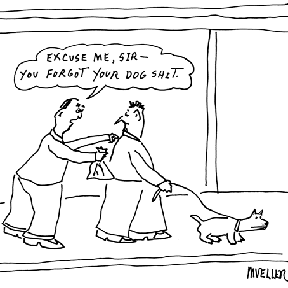With a blizzard coming our way tomorrow, our dogs are probably going to be trudging through lots of driveways smattered with what looks like green-blue snow. This winter, antifreeze is everywhere undertoe, and we as owners should remember once more, that dogs lick their paws. Antifreeze tastes sweet! Because it's tasty, animals go looking for it. More than a few dogs are accidentally poisoned with automotive antifreeze each year.
If there is any sign that your dog may have ingested antifreeze, do contact your vet without hesitation. Just five teaspoons can kill a 10-pound dog!
Here's an after-hours vet in Park Slope should you need one....
Animal Kind Veterinary Hospital
365 7th Ave
Park Slope
718 832 3899
Extended evening Emergency Hours until midnight, with surcharge
Symptoms: Within thirty minutes after lapping up antifreeze, your dog will seem "tipsy", lasting up to six hours. S/he will drink a lot and seem very lethargic and wobbly. S/he may exhibit excessive thirst and urination, lack of coordination, weakness, nausea, tremors, vomiting, rapid breathing and heart rate, convulsions, crystals in urine, diarrhea, paralysis, depression, thirst and frequent urination. Once the appearance of drunkenness is over, however, your dog is not any better off. In fact, this just means his/her kidneys have now processed the poison, and significant kidney damage will occur.
Twelve hours later your dog may seem to be getting better. However two days later they can suddenly take a serious turn for the worse, becoming dehydrated, weak, and depressed. You might notice that they have mouth ulcers, have developed diarrhea, are suffering from rapid breathing or seizures. The tell-tale sign: their kidneys are swollen and tender.
Catch your dog within half a day: If you catch your dog while s/he still seems drunken, and s/he has not ingested a large amount of anti-freeze, your dog has a chance of full recovery. The vet will probably do three main things:
1. Give your dog TONS of water, external and intravenous;
2. Induce vomiting;
3. Give your dog activated charcoal tablets, to sop up the remaining poison;
Prevention: Aside from checking out the sidewalk and driveway for antifreeze puddles, consider doing your part to protect other dogs from your own antifreeze drippings. Switch from conventional ethylene glycol-based products, which are highly toxic and even fatal, to a coolant formulated with propylene glycol. They are still toxic, but far less hazardous, and they are biodegradable.
Other Streetdrinking issues:
Ever catch your dog sneakin a drink of a small standing pool in the street? Did you wonder if it was dangerous? Yes indeed: The urine of rodents infected with the bacteria Leptospira can contaminate those standing pools of water. Leptospira can survive for weeks or longer in a warm moist environment, and if your dog contracts leptospirosis -- whether by drinking, or via contact with open wounds or mucous membranes -- s/he can get severely ill. Symptoms may include: fever, vomiting, yellowing of the skin or eyes, refusal to eat, weight loss, decreased activity, muscle pains, or stiffness.



No comments:
Post a Comment